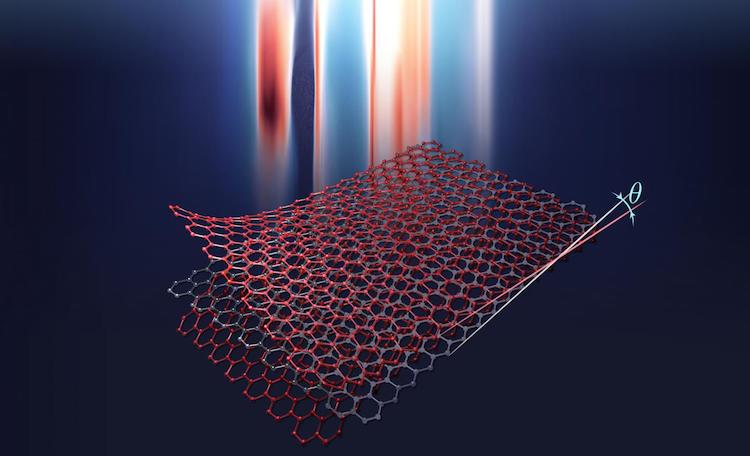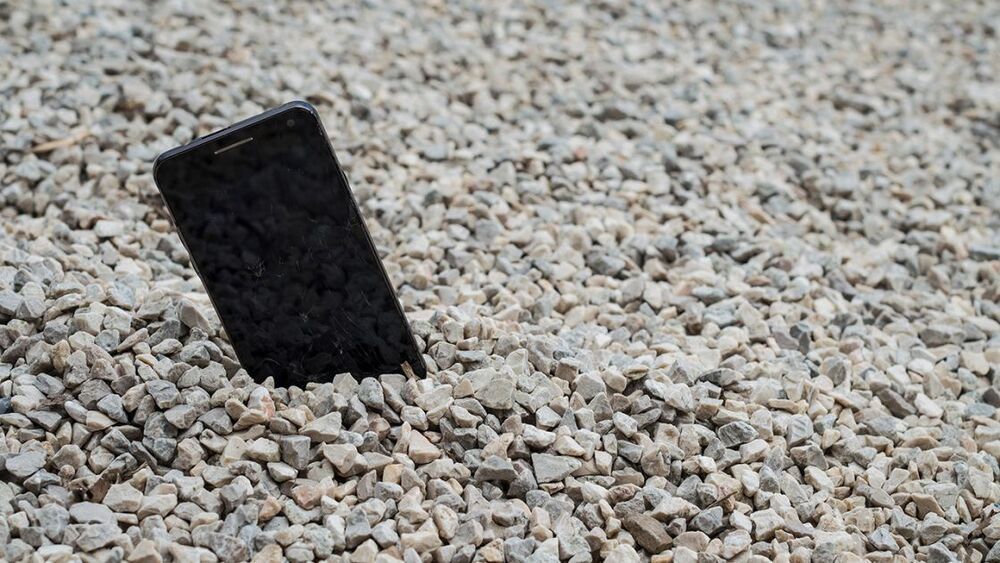Scientists recently captured a high-resolution video of DNA shimmying into weird shapes in order to squeeze inside cells.
Get the latest international news and world events from around the world.


Twisted trilayer graphene could help make high-temperature superconductors
Two’s company, but three’s a crowd – unless you’re trying to make graphene superconduct at higher temperatures. That is the finding of researchers at Harvard University in the US, who discovered that the superconducting state in three stacked and twisted layers of graphene is more robust to temperature increase than the equivalent state in two-layer graphene. The researchers also found evidence that superconductivity in the trilayer system comes from strong interactions between electrons, rather than weak ones as in most conventional superconductors – corroborating a result reported a few days earlier by a separate team at the Massachusetts Institute of Technology (MIT).
A sheet of graphene consists of a simple repetition of carbon atoms arranged in a two-dimensional hexagonal lattice. When two sheets of graphene are placed atop each other and slightly misaligned, they form a moiré pattern, or “stretched” superlattice that dramatically changes the electronic interactions in the material compared to its pristine counterpart. The misalignment angle is critical: in 2018, the MIT group, led by Pablo Jarillo-Herrero, discovered a so-called “magic” angle of 1.1° where the material switches from an insulator to a superconductor. This means the twisted graphene can carry electrical current with no resistance below a superconducting transition temperature, Tc, of 1.7 K.

Scientists 3D print new dragonfly-inspired ‘spiky-joints’ for treating wrist injuries
Researchers from the German Kiel University have developed novel 3D printed ‘spiky-joints’ that provide wrist injury patients with a more flexible form of arm support.
Inspired by the natural wing micro-joints of the dragonfly, the spiky-joint features a novel interlocking mechanism that’s designed to cushion the wrist without impairing free movement. When set to its maximum rigidity, the scientists believe their device could be ideal for treating everyday strains and sprains, and preventing common hyperextension injuries in athletes.

Art Installation Helps Plants Grow
This art installation enhances plant growth while taking pesticides out of the equation through ultraviolet light. The GROW project shines vertical lights across 215000 square feet of farmland creating a luminous dreamscape that highlights the beauty of agriculture, and displays nature as the ultimate work of art it is!
📹 @roosegaarde via IG.

NASA’s Perseverance successfully touches down on Mars
NEW: A new photo from NASA rover Perseverance’s “jetpack” shows the surface of Mars just before it touched down on the Red Planet.
Like.
Comment.
NASA is expected to land its Perseverance rover on Mars this Thursday,.
Episode 38 — The Trouble With Dark Energy
Great new episode with Alex Filippenko, a University of California, Berkeley astronomer, who was part of the Nobel-winning teams that discovered dark energy in the late 1990s. Please listen.
Nearly 25 years after its discovery, the mystery at the core of dark energy persists. Astronomers are no closer to understanding what’s behind this cosmic repulsive force that counteracts gravity and causes the cosmos to expand at an accelerating rate than when it was first discovered in 1998. Guest Alexei Filippenko is a member of the Nobel Prize-winning team that detected dark energy via supernovae surveys. He gives us the inside scoop on how dark energy was detected; what it means for our existence and the prospects for unmasking this bizarre force of nature that makes up some 70 percent of the observable universe.

